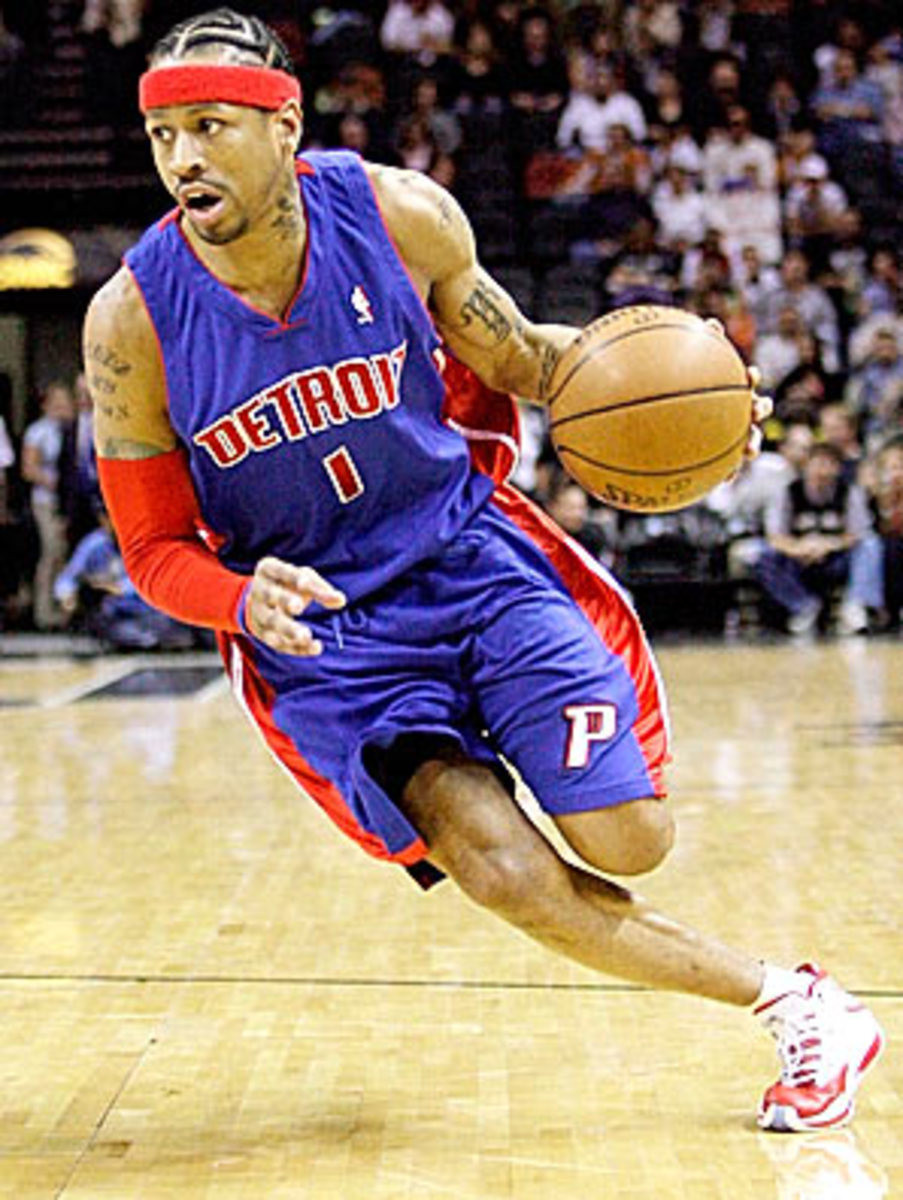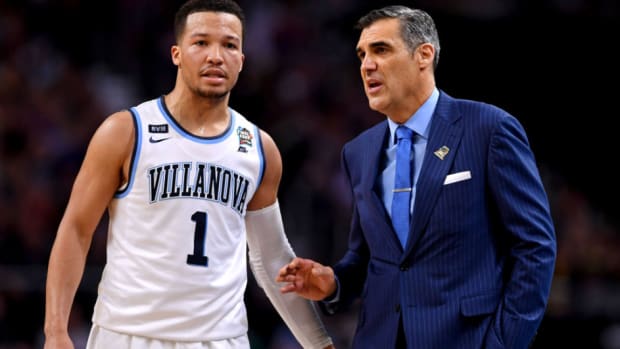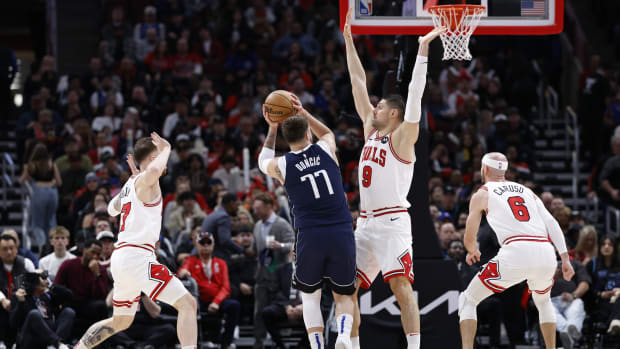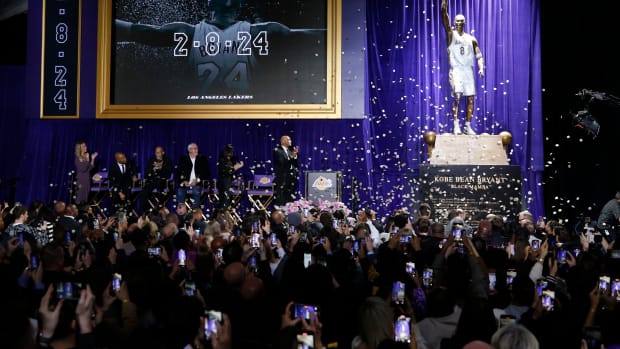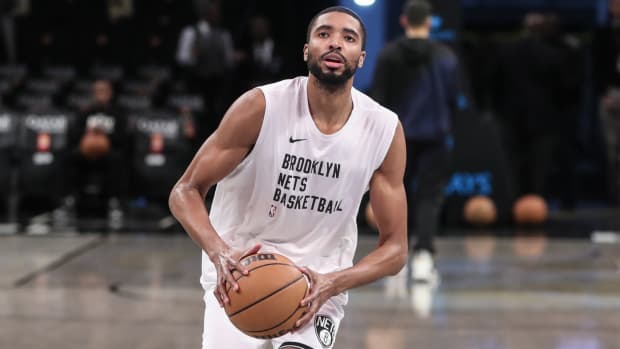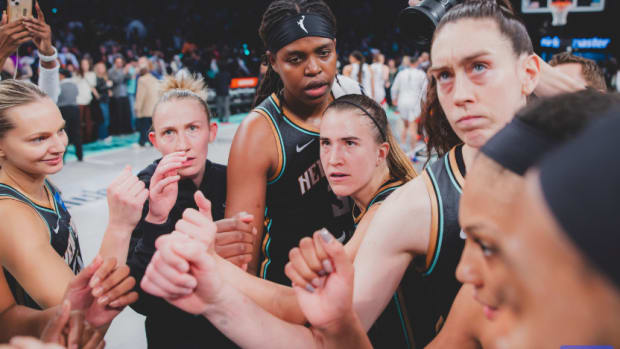After Iverson trade, Pistons caught between the present and future
Most of the time, my inclination with these big-picture questions is to believe that they have limited staying power. When, for example, was the last time you heard someone talk about the Pacers/Pistons brawl that spawned weeks -- if not months -- of commentary? How about Tim Donaghy? But what makes the summer of 2010 so unique is that by its very nature it is bound to stay relevant for the next season and a half. Unless LeBron James follows through on his recent musings about signing an extension with the Cavaliers this summer, there's no reason to believe the hype will die down anytime soon.
The strongest argument that 2010 free-agent anticipation is hurting the NBA is the overt way the Knicks went about trading away Jamal Crawford and Zach Randolph. There was no mystery there; New York was hurting its chance to compete the next two years (with the apparent blessing of the Knicks' fan base) for the opportunity to become players in the summer of 2010. There's nothing new or unique about this, but because so many talented players will be available then, the number of teams playing for tomorrow figures to reach an all-time high during the 2009-10 season.
There's definitely something to be said for the opportunity for fans of also-ran teams -- especially those in big markets -- to dream about the possibility of adding a marquee player as a free agent instead of being resigned to a dark future. The biggest issue I've seen is teams that are stuck between being competitive now and planning for tomorrow. To an extent, that's the situation the remaining Knicks find themselves in the next two seasons. However, no NBA team exemplifies that split personality quite like the Pistons. In trading for Allen Iverson last month, Pistons president Joe Dumars planned for the future ... but not completely.
Part of what made Iverson attractive to Dumars was his massive contract, which expires at the end of this season. Combine that with Rasheed Wallace's expiring contract and the Pistons will be well under the salary cap this summer, with the opportunity to roll that cap space over and save it for 2010 if they so desire. At the same time, what made this deal unique is that Iverson is not just a contract but Allen Iverson, a former MVP who has made the All-Star Game nine years running. This is not the same as trading for Cuttino Mobley and Tim Thomas.
In between the addition of Wallace to complete the starting lineup in the spring of 2004 and the trade of Chauncey Billups to Denver as part of the deal for Iverson, Detroit's series of coaches could write in four of their five starters on a nightly basis, barring injury: Billups, Richard Hamilton, Tayshaun Prince and Wallace. The team successfully adjusted to replace Ben Wallace after he left in free agency for Chicago, but this more recent change has proved more problematic.
Surely, Iverson's days with the Pistons are numbered. Detroit already has Billups' replacement, second-year point guard Rodney Stuckey. Even in the short term, Stuckey is better at running the point than Iverson, which is why rookie coach Michael Curry has gone to a small starting lineup that has moved Prince to power forward and Hamilton to small forward to make room for a backcourt of Stuckey and Iverson.
The problem comes when Curry has to finish games with a more conventional lineup, leaving him with four players for three spots, all of whom except perhaps Stuckey reasonably believe they should be on the floor down the stretch. In late November, Prince was miffed when he sat out the entire fourth quarter of a loss to Portland (though that had as much to do with an off night as the lineup, as reserve wings Arron Afflalo and Walter Herrmann were on the floor in the fourth and Detroit continued to play small).
Last Sunday in Atlanta, it was Iverson's turn to sit. With four-and-a-half minutes left in the final period and the Hawks' lead still tenuous, he was replaced by Stuckey, returning to the game only when Hamilton was ejected for arguing a non-call. Iverson did not apparently complain to the media afterward, but his body language while on the bench told a different story.
Hamilton's ejection, his second of the year, was emblematic of the frustration he and Wallace are apparently feeling and directing toward the referees. Hamilton received his fourth technical foul of the season, on pace for 12 -- up from nine a year ago in 72 games. Wallace is certainly no stranger to the T, but with a league-high 11 this season he's already close to matching last year's total of 12.
The Pistons have had plenty of reason to be upset, having started the season only 15-11 and having lost six of their last 11 games. Sunday's defeat was a reminder that Detroit has been passed in the Eastern Conference pecking order by Cleveland, Orlando and perhaps Atlanta, which would play host to the Pistons in a first-round playoff matchup if the season ended today. Clearly, this is not the same team that has made the conference finals six consecutive years.
Detroit has felt the impact of Billups' absence -- and perhaps also the switch from Flip Saunders to Curry on the sidelines -- at both ends of the floor. One of the league's most balanced teams under Saunders, the Pistons are now unable to call either end a strength. They've slipped from eighth in the NBA in offensive rating (points per 100 possessions) to 15th, while the drop-off on defense has been even more precipitous -- from fourth to 19th. I assumed that small ball might be a culprit, but Detroit has actually defended slightly better (though still only average) since going to the smaller starting five.
It's still too early to eulogize the old Pistons; even without Billups, it wouldn't stun me to see this group put things together and reestablish themselves as contenders. However, right now it seems like Detroit is selling hope almost as much as it is selling wins. On that count, the disappointment of the Iverson deal and subsequent lineup change is that young big men Amir Johnson and Jason Maxiell have been squeezed from the rotation, Johnson logging just eight minutes in the last seven games and Maxiell 80. The upside is that Stuckey has responded beautifully during that stretch, averaging 18.4 points (including a 40-point game Tuesday against Chicago) and 7.4 assists as a starter while posting an assist/turnover ratio of 3.47. Stuckey looks like one cornerstone of the next great Pistons team, which also figures to include Hamilton and Prince and whoever Dumars can attract to Detroit using the cap space.
The future is still reasonably bright for the Pistons. If the present is somewhat awkward, blame it on 2010.






























